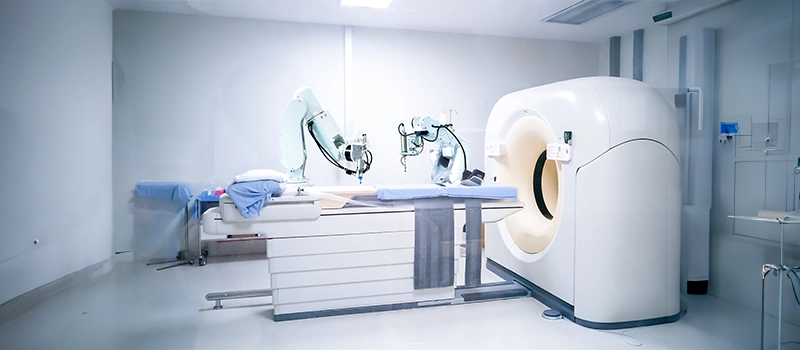
How to Become a Neurosurgeon: Salary, Qualifications, Skills, Roles & Responsibilities
Becoming a neurosurgeon is a challenging but rewarding career path that requires extensive education, training, and dedication. A neurosurgeon is a medical doctor who specializes in the surgical treatment of diseases and conditions of the brain, spine, and nervous system. Below is an updated guide that includes the correct information about the qualifications, salary, skills, roles, and responsibilities of a neurosurgeon, including the crucial MBBS degree.
What does a Neurosurgeon do?
A neurosurgeon is responsible for diagnosing and surgically treating disorders of the brain, spine, and nervous system. Common conditions treated include:
- Brain tumors
- Spinal cord injuries
- Aneurysms
- Epilepsy
- Parkinson’s disease
- Traumatic Brain Injuries
Neurosurgeons may perform surgeries such as brain tumor removal, spinal fusion, and treatments for vascular abnormalities. They work in hospitals, surgical centers, and research institutions.
1. Educational Requirements to Become a Neurosurgeon
Becoming a neurosurgeon takes many years of education and hands-on training. Here’s the correct step-by-step process:
Step 1: Complete an MBBS (Bachelor of Medicine, Bachelor of Surgery)
The first essential step is to complete an MBBS (or equivalent medical degree) in your country. This typically takes 5 to 6 years and is the foundational qualification for entering the medical profession. During this time, you’ll study medical sciences like anatomy, physiology, pathology, and pharmacology. You’ll also participate in clinical training in various specialties.
Step 2: Medical Internship
After completing the MBBS, you’ll need to undergo an internship for 1 year. During this year, you will rotate through different departments of a hospital, gaining practical experience in patient care and surgery.
Step 3: Postgraduate Training (MS/MD or Residency in Neurosurgery)
After completing your MBBS and internship, aspiring neurosurgeons must pursue postgraduate training in neurosurgery. The options may vary by country:
- In India, for example, after completing an MBBS, one must pursue an MS (Master of Surgery) or MCh (Master of Chirurgiae) specifically in neurosurgery. This typically takes 3 years of study and hands-on practice in a clinical setting.
- In the United States and many other countries, after completing an MBBS-equivalent (MD), you must apply for a neurosurgery residency program, which typically lasts 7-9 years and includes comprehensive surgical training and education.
Step 4: Fellowship (Optional)
Once you’ve completed your residency, you may choose to pursue further specialization through a fellowship in areas like pediatric neurosurgery, spinal surgery, or neurovascular surgery. Fellowships usually take 1-2 years to complete.
Step 5: Board Certification
After completing your residency and fellowship (if applicable), you’ll need to pass board exams in your country to become a certified neurosurgeon. This is an essential step before you can practice independently. In the U.S., for example, neurosurgeons are certified by the American Board of Neurological Surgery.
2. Key Skills for a Neurosurgeon
Neurosurgery demands a combination of medical knowledge, technical skill, and personal qualities:
- Manual Dexterity: Neurosurgery requires fine motor skills and precision. The procedures are delicate and often require working in confined spaces.
- Critical Thinking and Problem-Solving: Neurosurgeons must think quickly and analyze complex cases, sometimes under intense pressure.
- Resilience and Stamina: Long surgical hours and the mental demands of the job require strong physical and mental endurance.
- Attention to Detail: Neurosurgeons must ensure no detail is overlooked, as mistakes in the operating room can have serious consequences.
- Communication Skills: Explaining complex medical conditions and treatment options to patients and their families requires clear communication.
3. Roles and Responsibilities of a Neurosurgeon
Neurosurgeons take on numerous roles and responsibilities, including:
- Diagnosis and Treatment Planning: They assess patients to diagnose conditions affecting the nervous system and devise treatment strategies, which may include surgery.
- Surgical Procedures: Neurosurgeons perform complex surgeries on the brain, spine, and nervous system to treat conditions like tumors, aneurysms, and trauma.
- Postoperative Care: They monitor patients’ recovery after surgery, managing any complications that may arise.
- Research and Education: Many neurosurgeons are involved in ongoing research to develop new surgical techniques and better treatments for neurological diseases.
- Collaboration: Neurosurgeons work closely with other specialists, such as neurologists, radiologists, and oncologists, to ensure comprehensive care for their patients.
4. Salary of a Neurosurgeon
The salary of a neurosurgeon is one of the highest among medical professionals. However, the income can vary depending on location, experience, and the type of practice. Here are some general estimates:
- United States: The average annual salary for a neurosurgeon is around $600,000 – $800,000, with some highly experienced surgeons earning well over $1 million.
- United Kingdom: Neurosurgeons earn between £60,000 and £120,000 annually, depending on experience and seniority.
- India: Neurosurgeons can earn around ₹12,00,000 to ₹25,00,000 per year in private practice, while those working in public hospitals may earn somewhat less.
- Canada: Neurosurgeons earn between CAD 350,000 to CAD 700,000 annually.
5. Job Outlook for Neurosurgeons
As neurological conditions become more prevalent, especially in an aging population, the demand for neurosurgeons is expected to grow. However, neurosurgery is a highly competitive field, and securing a residency spot can be difficult due to the limited number of positions. Advances in medical technology, such as minimally invasive techniques, also present new opportunities for neurosurgeons.
How to Become a Neurosurgeon in India: Salary, Qualifications, Skills, Roles & Responsibilities
Becoming a neurosurgeon is a highly rewarding but demanding career. The path involves years of rigorous education, including the completion of an MBBS, a residency in neurosurgery, and possibly further specialization. It requires not just medical knowledge, but exceptional manual dexterity, problem-solving ability, and communication skills.
If you are committed to providing life-changing care, solving complex medical problems, and contributing to the advancement of medicine, neurosurgery can offer a fulfilling career. The salary and job prospects are excellent, but the journey requires hard work and perseverance.
1. What Does a Neurosurgeon Do?
Neurosurgeons specialize in diagnosing and surgically treating disorders affecting the brain, spine, and nervous system. These can include conditions like:
- Brain Tumors
- Spinal Injuries
- Aneurysms
- Epilepsy
- Parkinson’s Disease
- Spinal Cord Disorders
- Traumatic Brain Injuries (TBI)
Neurosurgeons perform delicate surgeries, such as brain tumor removal, spinal fusion, and surgeries for treating vascular problems or traumatic injuries to the nervous system.
2. How to Become a Neurosurgeon in India: Step-by-Step Process
The road to becoming a neurosurgeon in India is long and requires a combination of undergraduate and postgraduate studies, followed by rigorous training. Below is the step-by-step guide:
Step 1: Complete an MBBS (Bachelor of Medicine, Bachelor of Surgery)
The first step to becoming a neurosurgeon in India is to complete an MBBS degree. The MBBS program is typically a 5.5-year course that includes 4.5 years of classroom education, followed by a 1-year internship. During this time, you will be introduced to various aspects of medicine, including anatomy, physiology, pathology, pharmacology, and more.
Eligibility for MBBS:
- Minimum Age: 17 years
- Educational Qualification: Completion of 10+2 (with Physics, Chemistry, and Biology) from a recognized board
- Entrance Exams: Candidates must clear medical entrance exams like NEET (National Eligibility cum Entrance Test) or other state-specific exams.
Step 2: Internship and Clinical Experience (1 Year)
After completing the MBBS course, you’ll have to do a 1-year internship in a hospital. This period allows you to gain hands-on experience working with patients under the supervision of experienced doctors.
Step 3: Pursue Postgraduate Training (MS/MD)
After completing MBBS and your internship, aspiring neurosurgeons need to pursue postgraduate training in neurosurgery. In India, this can be achieved through a Master of Surgery (MS) in General Surgery or directly through MCh (Master of Chirurgiae) in Neurosurgery.
- MS in General Surgery (3 years): After completing the MS, candidates can further specialize in neurosurgery by taking part in a residency program.
- MCh in Neurosurgery (6 years): For a more direct pathway, candidates can choose to specialize immediately in neurosurgery after MBBS by joining an MCh program, which typically lasts 6 years.
Eligibility for MCh Neurosurgery:
- MBBS Degree from a recognized institution
- Entrance Exams: To get admission to MCh in Neurosurgery, you need to clear entrance exams like NEET-SS (Super Specialty), which is the national level exam for admission to super specialty courses.
Step 4: Fellowships (Optional)
After completing MCh Neurosurgery, some neurosurgeons may choose to pursue fellowships to specialize further in a particular area, such as:
- Pediatric Neurosurgery
- Spinal Surgery
- Neurovascular Surgery
- Functional Neurosurgery
These fellowships usually last between 1-2 years and help in gaining expertise in specific areas.
Step 5: Board Certification
In India, neurosurgeons can obtain certification from medical boards such as the National Board of Examinations (NBE). This is not mandatory but is highly recommended for practicing as a recognized specialist.
3. Key Skills Required to Become a Neurosurgeon
Neurosurgery is a highly demanding specialty that requires a set of unique skills and attributes. Some of the key skills include:
- Manual Dexterity: Since neurosurgery involves intricate and delicate surgeries, neurosurgeons must have excellent hand-eye coordination and fine motor skills.
- Attention to Detail: Neurosurgery often deals with life-critical conditions, where even the smallest mistake can have severe consequences. A neurosurgeon must be meticulous and detail oriented.
- Critical Thinking: Neurosurgeons need to quickly analyze complex problems and develop effective treatment plans, especially during emergency surgeries.
- Stamina and Resilience: Long hours in the operating room and the mental stress of handling critical cases require neurosurgeons to have high levels of physical stamina and mental resilience.
- Communication Skills: A neurosurgeon must effectively communicate with patients, their families, and other healthcare professionals to ensure the best possible outcomes.
- Problem-Solving Skills: Neurosurgeons must come up with innovative solutions, especially in cases where traditional treatments may not work.
4. Roles and Responsibilities of a Neurosurgeon
Neurosurgeons have a broad range of responsibilities, including:
- Diagnosing Conditions: They evaluate and diagnose neurological conditions that may require surgical intervention, such as brain tumors, spinal injuries, and vascular malformations.
- Surgical Procedures: Neurosurgeons perform surgeries such as brain tumor removal, spinal surgery, deep brain stimulation, and surgeries for traumatic injuries.
- Postoperative Care: After surgery, neurosurgeons monitor and manage the recovery process, ensuring that patients have the best chance for a successful recovery.
- Collaboration with Medical Teams: Neurosurgeons work closely with neurologists, oncologists, radiologists, and other specialists to ensure that all aspects of a patient’s condition are addressed.
- Research and Development: Many neurosurgeons are involved in clinical research, helping to advance medical knowledge and develop new treatments or techniques in neurosurgery.
5. Salary of a Neurosurgeon in India
Neurosurgeons are among the highest-paid doctors in India, but their salaries vary depending on experience, location, and whether they work in a public or private setting.
- In Private Practice: Neurosurgeons in India can earn ₹12,00,000 to ₹25,00,000 per year or more, especially if they are well-established in high-demand cities like Delhi, Mumbai, or Bangalore.
- In Government Hospitals: The salary for a neurosurgeon in government service usually ranges between ₹1,00,000 to ₹2,50,000 per month, depending on the hospital and years of experience.
- Experienced Surgeons: Highly experienced or specialized neurosurgeons can earn upwards of ₹30,00,000 to ₹50,00,000 per year, particularly those working in top private hospitals or running their own clinics.
6. Job Outlook for Neurosurgeons in India
The demand for neurosurgeons in India is steadily increasing due to the rise in neurological diseases, an aging population, and improvements in healthcare infrastructure. As people live longer, the prevalence of conditions like stroke, dementia, and spinal disorders has risen, creating a greater need for skilled neurosurgeons.
While the demand is high, neurosurgery remains a highly competitive field, especially for securing a seat in MCh Neurosurgery programs. However, the growing awareness and availability of advanced medical technologies ensure that neurosurgeons will continue to play a critical role in India’s healthcare system.
Becoming a neurosurgeon in India requires a deep commitment to years of study, training, and perseverance. The process includes completing an MBBS, followed by post-graduate specialization in neurosurgery through an MS or MCh program, and possibly even a fellowship. While the journey is demanding, the rewards both financially and in terms of job satisfaction are significant.
If you are passionate about making a life-changing difference in the field of medicine, have the necessary skills, and are willing to put in the years of hard work, neurosurgery could be a fulfilling and prestigious career for you.
Frequently Asked Questions:
- What are the qualifications to become a neurosurgeon?
Medical school degree of 4 years, which can be a Doctor of Medicine or Osteopathic Medicine. General surgery internship of 1 year. Post-graduate training or residency of 5 to 7 years in a neurosurgery program.
- Which subject is best for neurosurgery?
The first step to becoming a neurosurgeon is to obtain a bachelor’s degree in biomedical science, biological sciences or a related field. This type of program provides a foundation on which aspiring neurosurgeons will build upon throughout their educational experience.
- Is neurosurgery a good career?
When working as a neurosurgeon, you’re often around the most passionate, dedicated and driven people in the hospital, so it can be easy to find inspiration from peers and senior colleagues. Neurosurgery is a small community of elite resident students and doctors.
- Is neurosurgeon MD or MS?
To be qualified to perform neurosurgery, a person must successfully complete: Four years of pre-medical education at a college or university, resulting in a bachelor’s degree. Four years of medical school, resulting in a Doctor of Medicine (MD) or Doctor of Osteopathic Medicine (DO) degree.
Related post


















































